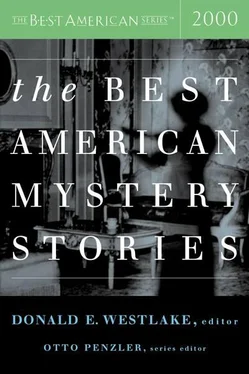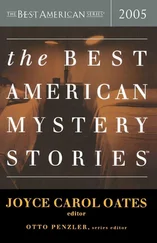David Beatywas born in Brazil of American parents. A graduate of Columbia University, he earned an MFA in creative writing from Florida International University. He has worked in Greece, England, and Brazil and currently lives in Coral Gables, Florida.
• I once played a version of “Ghosts” — an infinitely more benign and enjoyable version — when I was nine or ten years old. I forgot about it until the day five or six years ago when I looked at my parents and was shocked to see that they’d grown old. And then I remembered the night when, still young, they’d powdered their hair and dressed up in sheets and we played hide-and-seek in our darkened house in Miami.
Tom Berdinewas born and raised in Lawrence Park, outside Erie, Pennsylvania, and attended the University of Buffalo. With brief stints in retail sales, textbook editing, construction, and sawmill work, his career has been in the people business, mainly child welfare, from which he retired Iast year. He is a husband, lather of five, grandfather of three.
• “Spring Rite,” in one form and another, gathered rejection notices for about fifteen years. I worked on it from time to time, feeling it was a good story and motivated to capture, or recapture, the intense feeling of a recalled scene — less than a scene really, an image or two — from a live television drama I saw as a kid. (We go way back with television in our family, our first set being homemade by an engineer rooming in the attic.) A fragment from that old video play, seen in boyhood, installed itself in my mind as a market for the sexual mystery and outright dangerousness of women. I was able to finish this story when I stopped being preoccupied with plot and recognized that what I was after was an evocation of that dark, ephemeral little nugget: the women here are mainly offstage, taken in only in sideways glances, at a distance, or in the imagination, so powerful are they, and the Fisher woman in particular is intended as the ghost of that phosphorescent creature I gulped from the surface of a ten-inch cathode-ray tube fifty years ago.
The setting for “Spring Rite” is the area in which I have lived for the past twenty or so years, with place names altered so that my neighbors won’t think I’m talking about them — something I do not do, vis-â-vis the advisory on gossip contained in “Spring Rite” — even though many of them naturally have stories and family histories more interesting than that of the Kramer brothers. For me, one of those people who can’t shut up and has boxes of unfinished novels, the mystery genre is very practical: solve the mystery, that’s the end.
Bentley Dadmunwas born and raised in Wisconsin and has lived in New Hampshire for the past twenty years. After spending several decades wandering the wrong roads, he now leads the life of the stereotypical hungry writer, and although it is often frustrating, the act of building a story is a joy without equal.
• I like to write about protagonists who are somewhat dysfunctional and eccentric but get the job done in spite of themselves — people who, while on their quest, must drag their baggage along with them, for that is how most of us function and that is how most of us live our lives, although few of us engage in worthwhile quests.
Before earning B.A. and M.A degrees at Northwestern University, Barbara D’Amatoworked as an assistant surgical orderly, a carpenter tor stage magic illusions, an assistant tiger handler, and a criminal law researcher. She is a past president of the Mystery Writers of America and Sisters in Crime. Born in Grand Rapids, Michigan, she now lives in Chicago.
• My husband and I drove Route 66 decades ago, when it still more or less existed as a continuous road. It seemed to me to be a bit of America that had seen most of the changes of the twentieth century, so I wanted to explore that in the story of “Motel 66,” as well as the effects of time on human beings. The story is also about secrets. We all have secrets. In this case, two people who are close have secrets, but what happens when two long-held secrets suddenly intersect?
Geary Danihywas born in New Haven and grew up in Hamden, Connecticut He attended Notre Dame High School, spent two and a half years at West Point, requested release, got married, and six months later was back in the army at the Artillery OCS, in Fort Sill, Oklahoma. Discharged in 1970, he attended the University of Idaho to complete his B.A. and then his M.A in English. After several jobs, he opened his own promotion agency, Culdan, which grew to include an advertising agency that handled the Jordache jeans account for two years. When the agency closed, he and his wife decided to take a chance and make a living “doing what we always wanted to do.” For her, that meant creating a company called Binky Botanika, which offers herbs, spices, and handmade bath and facial products. For me, that meant writing.
• “Jumping with Jim,” my first published story, is the result of my lifelong interest in the conflict between desire and duty. (I was raised on a steady diet of movies like High Noon, Beau Geste, Casablanca, and Captains Courageous.) My wife and I disagree over whether Conrad’s Lord Jim did the right thing by sacrificing his love for a “higher principle,” but we have no disagreement with Frank Taylor’s decision.
Jeffery Deaver, a former attorney and folksinger, is a Sew York Times bestselling author of fourteen novels. He has been nominated for four Edgar Awards from the Mystery Writers of America (two for his short stories) and is a two-time recipient of the Ellery Queen Readers’ Award for Best Short Story of the Year. His book A Maiden’s Grave was made into an HBO movie starring James Garner and Marlee Matlin, and his novel The Bone Collector, starring Denzel Washington, was a feature release from Universal Pictures. His most recent novels are The Devil’s Teardrop, The Empty Chair, and Speaking in Tongues. He lives in Virginia and California.
• Rarely do I write novels or stories based on actual occurrences, but “Triangle” is one that I did extract from real life. I lived in Manhattan for a number of years, and now that I am a resident of the sort-of South (outside-the-Beltway D.C.), I find myself returning to New York with some frequency. One summer day, en route north, I stood at the United Airlines gate at Dulles Airport and watched a tiny drama unfold — it involved a mother and stepfather seeing off a young boy, flying to the city, presumably to spend the weekend with his natural father. The boy was upset, the mother bored, and the stepfather pleased, possibly looking forward to some rime without the youngster at home. A psychologist undoubtedly could find in this sad scenario a number of insights about dysfunctional families and the anger of youth. The mind not being my forte, however, I decided to turn the situation into a story more aligned with one of my specialties: murder.
Edward Falcois the author of the hypertext novel A Dream with Demons, the print novel Winter in Florida, and the short story collections Plato at Scratch Daniel’s and Acid. Acid won the Richard Sullivan Prize and was a finalist for the Patterson Prize. His stories have been widely published in journals, including the Atlantic Monthly, the Missouri Review, the Southern Review, Playboy, Ploughshares, and TriQuarterly. Annual anthologies that have selected his stories include The Best American Short Stories, The Best American Mystery Stories, The Best American Erotica, and The Pushcart Prize.
• “The Instruments of Peace” is a story that emerges out of the years I spent working with racehorses, first as a farmhand in Wallkill, New York, later as groom in Orlando, Florida, and finally as a trainer at Monticello Raceway in the Catskill Mountains, where my career ended ignominiously after I bought a yearling with bone spurs and my one and only moneymaker bowed a tendon. Having failed as a horseman, I retreated to the quiet of academia, where I have since consoled myself with writing.
Читать дальше












